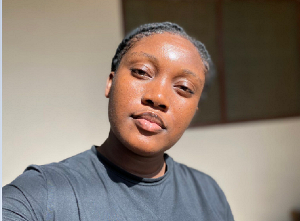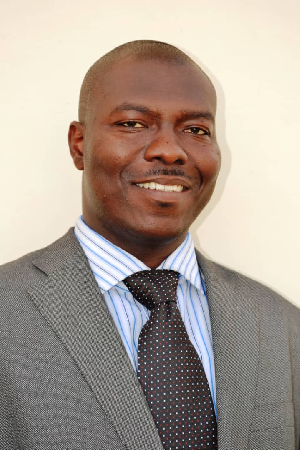- Home - News
- TWI News | TV
- Polls
- Year In Review
- News Archive
- Crime & Punishment
- Politics
- Regional
- Editorial
- Health
- Ghanaians Abroad
- Tabloid
- Africa
- Religion
- Election 2020
- Coronavirus
- News Videos | TV
- Photo Archives
- News Headlines
- Press Release
General News of Friday, 24 April 1998
Source: --
Ghanaian deported to US cannot return to Ghana
Accra April 23, 1998 A Ghanaian citizen who was deported to the United States in 1984 with others for spying for the United States has lost his bid to have his Ghanaian citizenship restored.
By a majority of 6-1, the Supreme Court dismissed an application by Mr Abel Edusei asking the court to order the Foreign Ministry to return his passport, seized by the security agencies, returned to him.
The panel upheld the decision of a five-member Supreme Court panel which ruled in February 1996 that the Supreme Court has no jurisdiction to hear Mr Edusei's writ.
In his writ, he argued that his passport was seized and he was deported to the United States for allegedly spying for the government of the US.
While in the US, he asked his solicitors to file the writ at the Supreme Court for an order to have his passport and Ghanaian citizenship restored.
In 1984, the Ghana government announced it had busted a major US spying network operating in the country following its penetration by Mr Michael Soussoudis, a cousin of President Jerry Rawlings.
Mr Soussoudis had befriended a US agent, Sharon Schranage, who gave him the names of all CIA operatives in Ghana including Mr Edusei.
However, the couple were lured to the US and both were arrested. In a dramatic exchange programme, Mr Soussoudis was exchanged for those who were caught spying for the US, some of whom were Ghananians, stripped of their nationality and deported to the US.
When the case started, Dr Obed Asamoah, Attorney-General and Minister of Justice, objected to the case being heard at the Supreme Court, arguing that the matter was a human rights issue which must be heard by a High Court as contained in the Constitution.
A five-member panel, by a majority of 3-2, upheld Dr Asamoah's submission and dismissed the writ.
Dissatisfied with the ruling, counsel for Mr Edusei filed an application for a judicial review.
The review panel, by 6-1 majority, affirmed the ruling of the trial court that the proper forum to hear the action, which was for the enforcement of fundamental human rights, was the High Court and not the Supreme Court.










